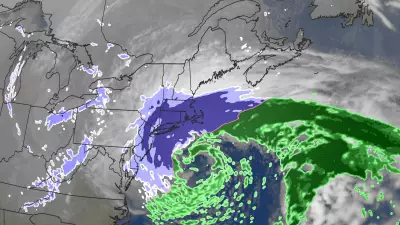
In a landmark achievement for marine science, researchers have successfully deployed the first-ever satellite transmitter on a free-swimming shark in Nova Scotian waters, marking a revolutionary step in understanding these majestic ocean predators.
The breakthrough moment occurred during a recent expedition where scientists managed to tag a blue shark without the traditional method of bringing the animal aboard their research vessel. This innovative approach represents a significant advancement in shark research methodology and animal welfare.
A New Era in Marine Tracking
Unlike conventional tagging methods that require capturing and restraining sharks, this new technique allows researchers to attach satellite transmitters while the sharks remain swimming freely in their natural environment. This minimizes stress on the animals and provides more accurate behavioral data.
The research team, comprising international marine biologists and local experts, has been working for months to perfect this groundbreaking tagging method. Their success opens up unprecedented opportunities for studying shark movements, migration patterns, and habitat use in the Northwest Atlantic.
Why Nova Scotia Waters Matter
The waters around Nova Scotia serve as critical habitat for multiple shark species, including blue sharks, great whites, and porbeagles. These apex predators play a vital role in maintaining healthy marine ecosystems, yet many aspects of their lives remain mysterious to scientists.
"This technological breakthrough gives us a window into the secret lives of sharks that we've never had before," explained the lead researcher. "By understanding their movements and behavior, we can better protect these essential ocean creatures and the marine environments they inhabit."
What the Satellite Data Reveals
The satellite transmitter attached to the blue shark will provide researchers with valuable information including:
- Daily movement patterns and migration routes
- Depth preferences and diving behavior
- Water temperature preferences
- Interaction with fishing areas and shipping lanes
- Long-term survival rates post-tagging
This data is crucial for developing effective conservation strategies and understanding how climate change might be affecting shark populations in Atlantic Canadian waters.
The successful tagging represents just the beginning of an ambitious multi-year research program aimed at tracking multiple shark species throughout their annual cycles in one of North America's most important marine ecosystems.






